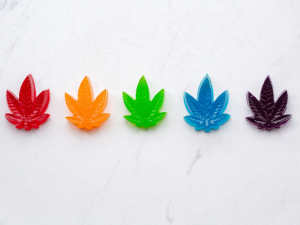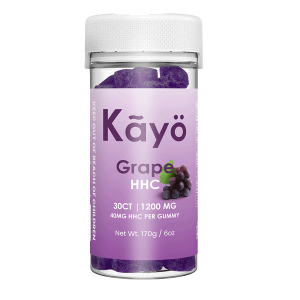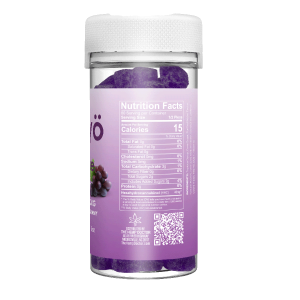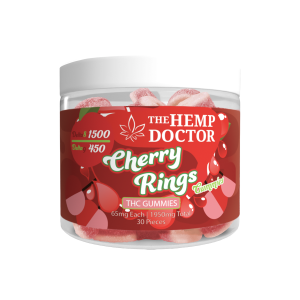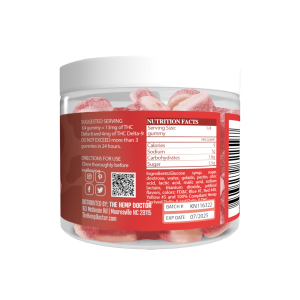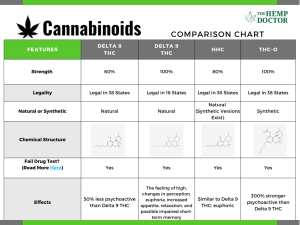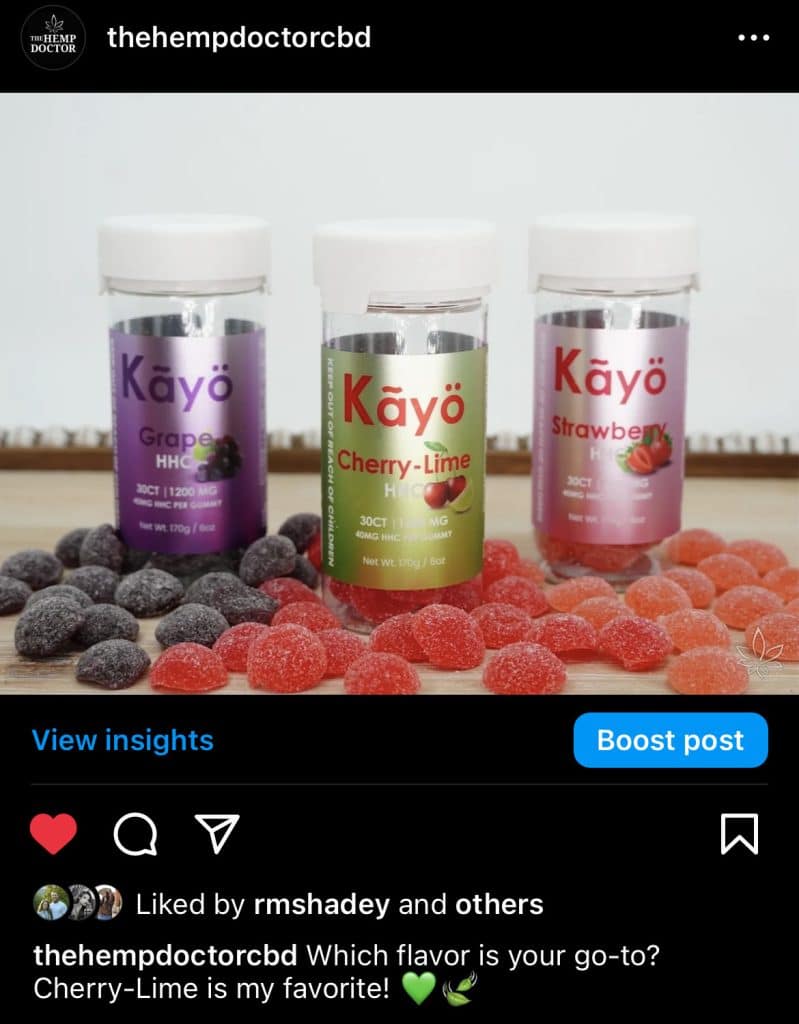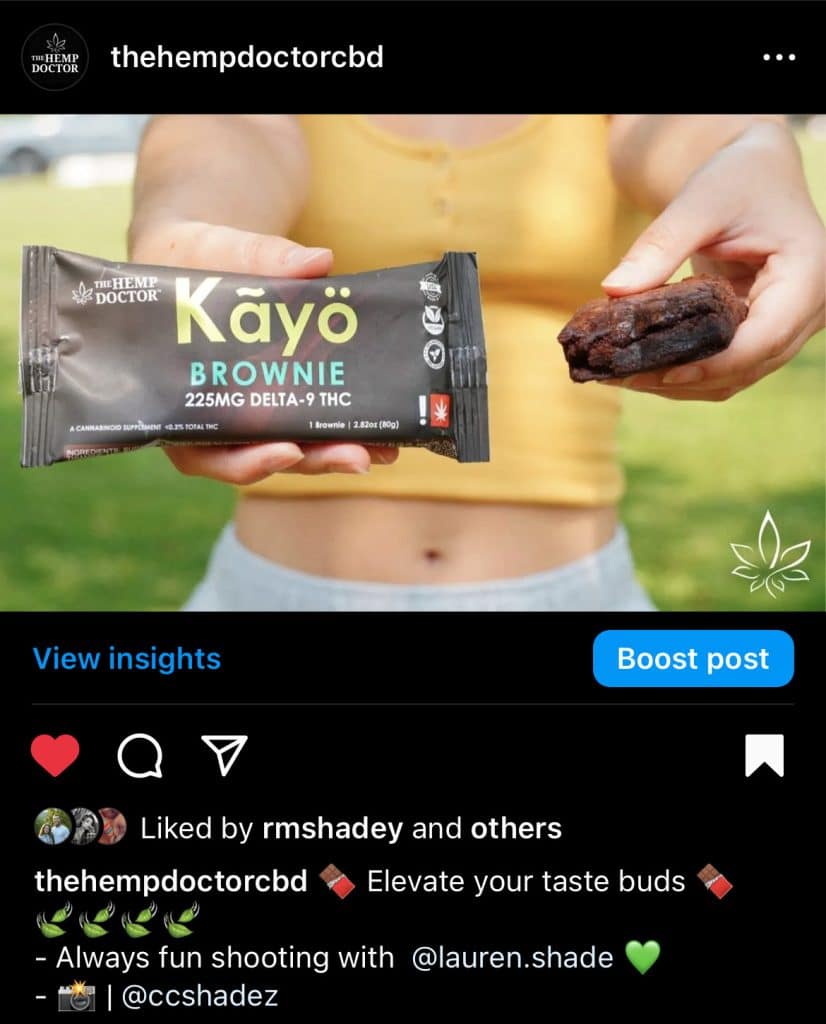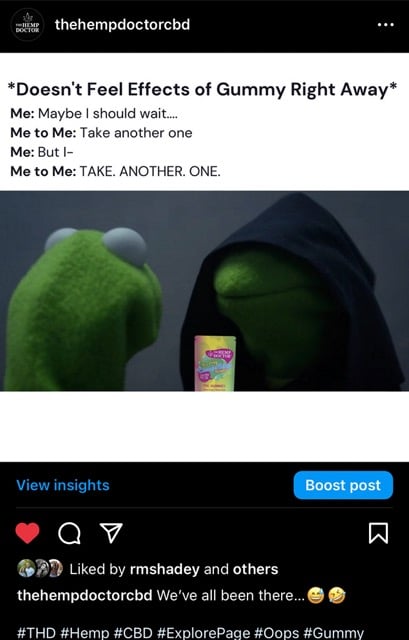HHC vs. Delta-8 vs. Delta-9 and THC-O: Differences and Similarities Explained
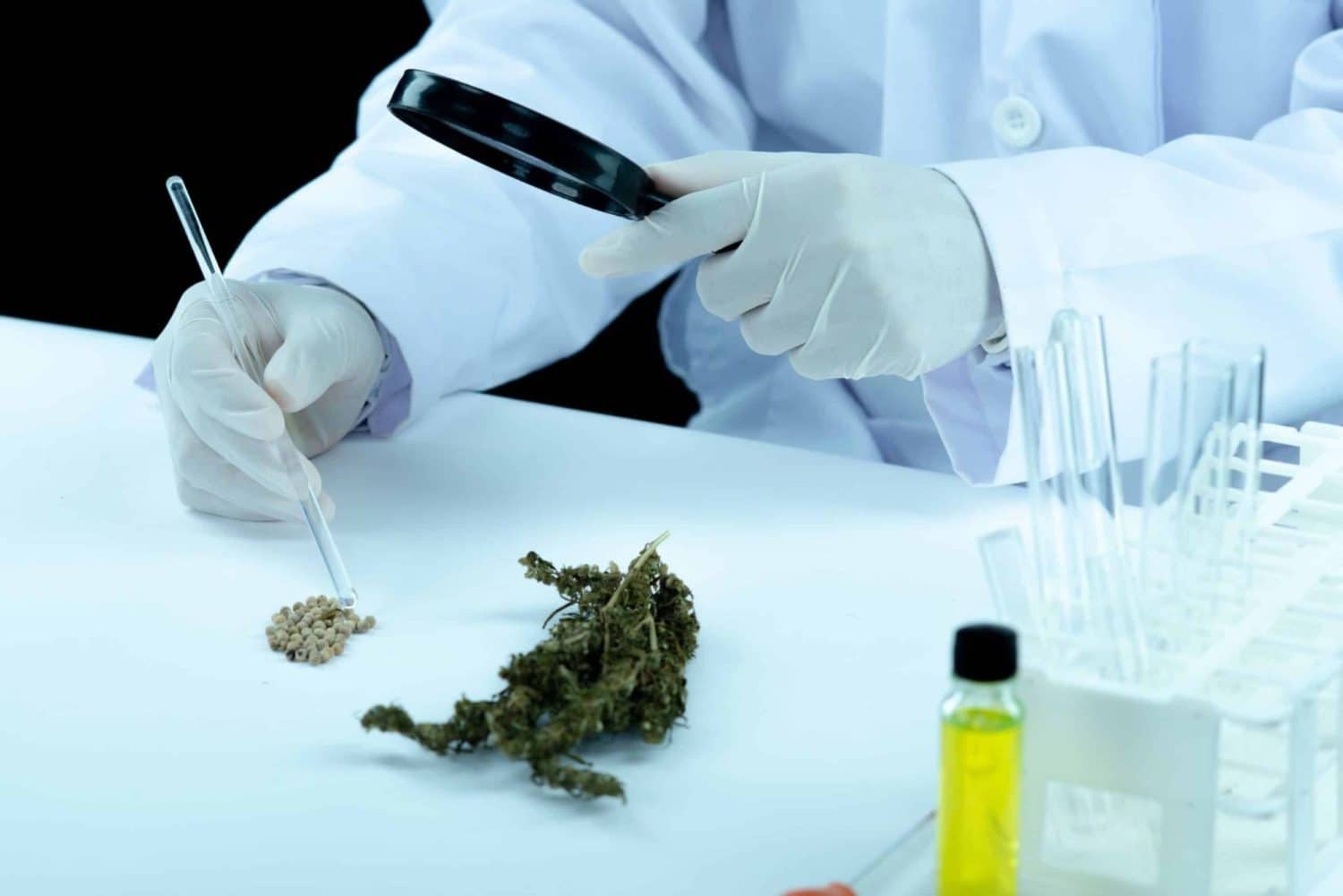
Are you passionate about hemp or THC products? If so, you’ll definitely want to delve deeper into the world of cannabis compounds and explore the latest hemp-derived products available.
At the Hemp Doctor, we share your love for hemp! We are constantly at the forefront of industry advancements, crafting the most innovative products on the market. Rest assured, we have all the answers to your inquiries as you explore new and exciting items such as gummies, edibles, vapes, tinctures, and more.
This guide will shed light on the primary differences and similarities between the newly emerged cannabinoids like HHC, THC-O, and Delta 8 THC, and with the famous psychoactive Delta 9 THC. Here’s everything you need to know.
What is HHC?
HHC stands for hexahydrocannabinol. It’s one of the latest cannabinoids that has reached the hemp-derived market, so the internet is still full of contradictory information about its effects, legality, and production methods.
Chemist Roger Adams – the one we should all thank for isolating CBD – was also the first chemist to synthesize HHC in his lab. He first extracted Delta-9 THC from the cannabis plant and used hydrogenation to make HHC. The process uses hydrogen, organic compounds, and a heavy metal catalyst to synthesize HHC.
Although it’s been a long time since Adams first synthesized HHC, it has only hit the market recently and is now becoming increasingly popular.
Is HHC a Synthetic Cannabinoid?
Even though creating sufficient amounts of HHC involves a lab process to synthesize it using hydrogenation, it is still not synthetic. That’s because HHC naturally exists in cannabis plants, but its scarcity in the cannabis plant is why manufacturers use advanced methods to acquire usable amounts of cannabinoids. Synthetic cannabinoids are manufactured in labs and do not exist in any plants. Therefore, HHC is not considered a synthetic cannabinoid.
Effects of HHC
HHC produces very similar effects to Delta 9 THC, but as marijuana remains federally illegal, those who can’t legally buy psychoactive cannabis plants opt for hemp derivatives. HHC is more potent than Delta 8 THC but less psychoactive than THC-O.
What is THC-O?
THC-O, short for tetrahydrocannabinol acetate, is a manufactured analog of THC, meaning it’s a synthetic cannabinoid. THC-O is another cannabinoid becoming a hit on the market, and one of the reasons is its increased potency. THC-O is three times stronger than Delta 9 THC in marijuana. Its popularity is also due to its legality. Manufacturers create THC-O from federally legal hemp with less than 0.3% THC. They begin by extracting CBD from hemp, converting it to Delta 8 THC, and using the organic solvent acetic anhydride to make THC-O. Although lab-made, technically, it’s still hemp-derived, and per federal law, hemp derivatives with no more than 0.3% THC are legal.
Is THC-O a Synthetic Cannabinoid?
THC-O is an artificial analog of THC, so it’s lab-made and synthetic. However, unlike other famous and dangerous synthetic cannabinoids such as Spice and K2, it’s structurally almost identical to Delta 9 THC. Other synthetic cannabinoids were utterly different from natural cannabis compounds. Therefore, they worked differently and unexpectedly on the human body and mind.
Effects of THC-O
As mentioned above, THC-O is much more potent than Delta-9 THC, so it can produce a much stronger high than marijuana. That’s why, when you first consume the cannabinoid, start with smaller doses so that you don’t go overboard. Then, wait for its effects for at least 30 minutes, see how it affects your body and mind. Increase the intake if needed to experience the desired results.
What is Delta 8 THC?
Delta 8 THC is another famous cannabinoid on the hemp market, but it’s been popular much longer than HHC, and THC-O and Delta 8 THC infused products are widely available. As one of the variants of THC, it shares many similarities with Delta 9 THC but is still notably different in many ways,
There are four primary differences between Delta 8 THC and Delta 9 THC:
- Chemical Structure
- Source
- Legality
- Effects
Chemical Structure
Delta 8 is one of the naturally-occurring analogs of THC in hemp. It’s structurally almost identical to Delta 9 THC but slightly different. They both have double bonds in their chemical structure, but Delta 9 has it on the 9th carbon chain, while Delta 8 has it on the 8th carbon chain – hence the names.
Source
Delta 8 THC on the market derives from hemp, but it reaches only trace amounts even in mature cannabis plants, so manufacturers use advanced extraction and conversion methods to produce Delta 8. First, they extract CBD from hemp and use an isomerization process to convert CBD to Delta 8 THC. As a result, Delta 8 THC is a hemp-derived compound, while Delta 9 THC in Delta 9 products primarily derives from marijuana, as hemp cannot produce more than 0.3% Delta 9 THC.
Legality
The 2018 Farm Bill made hemp and its derivatives with no more than 0.3% THC federally legal. Therefore, Delta 8 THC is legal per federal law. Still, some states criminalize all THC types, so always check local laws before buying and consuming Delta 8 THC.
Is Delta-8 a Synthetic Cannabinoid?
No, Delta-8 is not a synthetic cannabinoid. It’s an analog of THC and occurs naturally in hemp plants. The process for extracting and isolating Delta-8 involves some chemical reactions (similar to the refinement of CBD from the plant matter), but it does not involve any synthetically created molecules.
Effects of Delta-8
Delta 8 THC produces a marijuana-like high, but its psychoactive potency is almost half of Delta 9 THC. Delta 8 THC results in a milder high, usually without common side effects of marijuana, such as paranoia.The high produced by Delta-8 is often described as more mild and clear-headed, making it less intense than its Delta-9 counterpart. Some users have even reported experiencing reduced anxiety with Delta-8 as opposed to Delta-9, though reactions can certainly vary, with some individuals still experiencing heightened anxiety or paranoia.
Beyond its psychoactive properties, there’s evidence to suggest potential benefits of Delta-8. For instance, it might possess analgesic (pain-relieving) and anti-inflammatory attributes.
Many Delta-8 consumers mention an uplifted mood or a mood boost. However, it’s worth noting that in substantial doses, Delta-8 might make you feel drowsy. Given its relatively recent emergence in the commercial market, the long-term effects and detailed safety profiles of Delta-8 remain areas ripe for exploration.
What is Delta 9 THC?
Delta 9 THC is why marijuana gets users high and is probably the superstar of cannabinoids. It primarily derives from marijuana and only has traces (0.3%) in hemp. The low amount of Delta 9 THC is not enough to induce mind-altering symptoms. That’s why hemp is non-psychoactive. However, Delta 9 THC is the primary reason for marijuana’s euphoric feelings and produces its psychoactive effects by interacting with the Endocannabinoid System (ECS) and activating CB1 receptors in the brain. Delta 9 THC is one of the most abundant cannabinoids in cannabis plants, along with CBD, but it’s federally illegal, unlike the latter.
Is Delta-9 a Syntehtic Cannabinoid?
No, Delta-9 THC (Δ9-THC) is not a synthetic cannabinoid. Delta-9 THC is the primary naturally occurring psychoactive compound found in the cannabis plant. It is responsible for the characteristic “high” that people associate with consuming marijuana.
Effects of Delta-9
Delta-9 THC, the principal psychoactive compound in cannabis, is known for inducing a range of effects. When consumed, users often experience a psychoactive high characterized by altered perceptions, heightened sensory experiences, and shifts in thought patterns. Many report feelings of euphoria and relaxation. Simultaneously, it can impair short-term memory, a well-known side effect during the period of intoxication. A pronounced increase in appetite colloquially termed the “munchies,” is also common. However, not all effects are universally appreciated; some users, especially at high doses, might grapple with feelings of anxiety or even paranoia. Medicinally, Delta-9 THC is valued for its analgesic properties, offering pain relief, and its anti-inflammatory benefits. Some of the more mundane side effects include drowsiness, dry mouth, and eyes. It’s also important to note its impact on motor skills, as it can impair coordination and prolong reaction times.
Delta 8 vs Delta 9 vs HHC vs THC-O: Which is Right for You?
We know there are lots of differences between the four major hemp-derived cannabinoids on the market. We also know you have questions. Like what’s the difference between Delta 8 vs Delta 9 effects? Is HHC vs THC-O right for me? Should you choose HHC vs Delta 8, or go for another option entirely?
The next section and table below make the distinctions between all variations clear so we can help you select the best option.
Delta 8
Delta 8 is a naturally-occurring analog of THC synthesized from hemp, making it legal in many states. There isn’t a great deal of difference between Delta 8 and Delta 9 in their chemical makeup — both are naturally occurring hydrocarbon compounds with a double carbon bond. However, they do differ in strength and potency, with Delta 8 being less psychoactive than Delta 9. The effect of using Delta 8 is a mild euphoric high, with some very mild marijuana-like side effects such as paranoia. Delta 8 has been found to be better for fighting nausea while HHC has a sedative effect and is better at helping with sleep. When comparing potency of HHC vs Delta 8, the latter is the stronger cannabinoid.
Delta 9
Much like Delta 8, Delta 9 is another naturally-occurring analog of THC. However, the Delta 8 vs Delta 9 high is one of the main points of difference. Delta 9 is stronger and more potent, meaning consumers will experience more intense highs and euphoria, but may also notice other side effects such as paranoia. These stronger effects mean Delta 9 is more restricted than any of the other cannabinoids discussed here.
HHC
HHC is the lesser known cannabinoid of the two Deltas, but what is HHC vs Delta 8 vs Delta 9? HHC is a natural phytocannabinoid found at a relatively small level within cannabis plants, which is one of the main differences between HHC vs Delta 8 or Delta 9. However, since the concentration of THC in the products is still under the legal amount, HHC is legal. HHC also binds more strongly to cannabinoid receptors compared to Delta-8 or Delta-9 THC. This often leads people to wonder, “Is HHC stronger than Delta 8?” The answer is that no, HHC is not as potent, but it does produce a relaxing effect without as much anxiety in high doses compared to Delta 8. So, is HHC better than Delta 8? It depends on your needs. If you’re seeking a mild euphoria from a naturally occurring compound, HHC might just be the option for you.
THC-O
One of the most potently psychoactive of this group of cannabinoids, THC-O is three times stronger than Delta 9 producing an intense euphoric feeling that is prized by regular heavy consumers for its sizable effects. Unlike HHC, Delta 9, and Delta 9, THC-O is a synthetic compound and is only able to be produced via chemical synthesis.
In Summary
Delta-8 THC
- What it is: Delta-8-tetrahydrocannabinol is a minor cannabinoid found in the cannabis plant. It’s an analog of Delta-9 THC with a slightly different chemical structure.
- Effects: Delta-8 THC produces psychoactive effects, but they are generally considered milder than those of Delta-9 THC.
Delta-9 THC
- What it is: This is the primary psychoactive component of the cannabis plant.
- Effects: Delta-9 THC is responsible for the euphoria, altered perception, and other “high” effects commonly associated with marijuana.
HHC (Hydroxyhexahydrocannabinol)
- What it is: HHC is a hydrogenated form of THC, and it’s often considered a metabolite of THC.
- Effects: The psychoactive effects of HHC are still under research, but they’re believed to be less potent than Delta-9 THC.
THC-O (THC Acetate)
- What it is: THC-O acetate is a synthetic derivative of THC. It’s created by modifying THC molecules with acetic anhydride.
- Effects: THC-O is reported to be more potent than Delta-9 THC, and its effects may be more psychedelic.
Which THC is best for me?
State laws aside, the best cannabinoid for you will depend on many factors. For people just starting their wellness journey, the first decision will likely be deciding between HHC vs Delta 8 because HHC products often contain more CBD and Delta 8 products more THC. However, regular consumers with an established wellness routine may wish to consider some other options that may also include Delta 9 and THC-O.
If you have any further questions or comments about these hemp cannabinoids, visit The Hemp Doctor Blog or contact our Customer Service and we’ll be happy to assist you!
Want to Try the New Hemp-Derived Cannabinoids on the Market? Shop at The Hemp Doctor Today!
At The Hemp Doctor, we strive to adopt wellness innovations on the market and supply our customers with the highest-quality hemp-derived ingredients that carry a wide range of benefits for relaxing and its potential at reducing anxiety. Our wide inventory features products with HHC, THC-O, Delta 8 THC, and Delta 9 THC in federally legal amounts.
As a premier hemp & CBD dispensary, we use only the premium ingredients and properties in our products, including phytocannabinoid-rich U.S.-grown hemp, which grows in the nutrient-rich soils of Colorado and North Carolina using only 100% organic practices. Our products go through advanced and safest production methods and undergo third-party quality analysis before they become available in our store. All our products are free of harmful ingredients and provide only premium-grade hemp-derived compounds.
Shop at The Hemp Doctor today and enrich your journey with the new, premium-grade hemp-derived cannabinoids.

